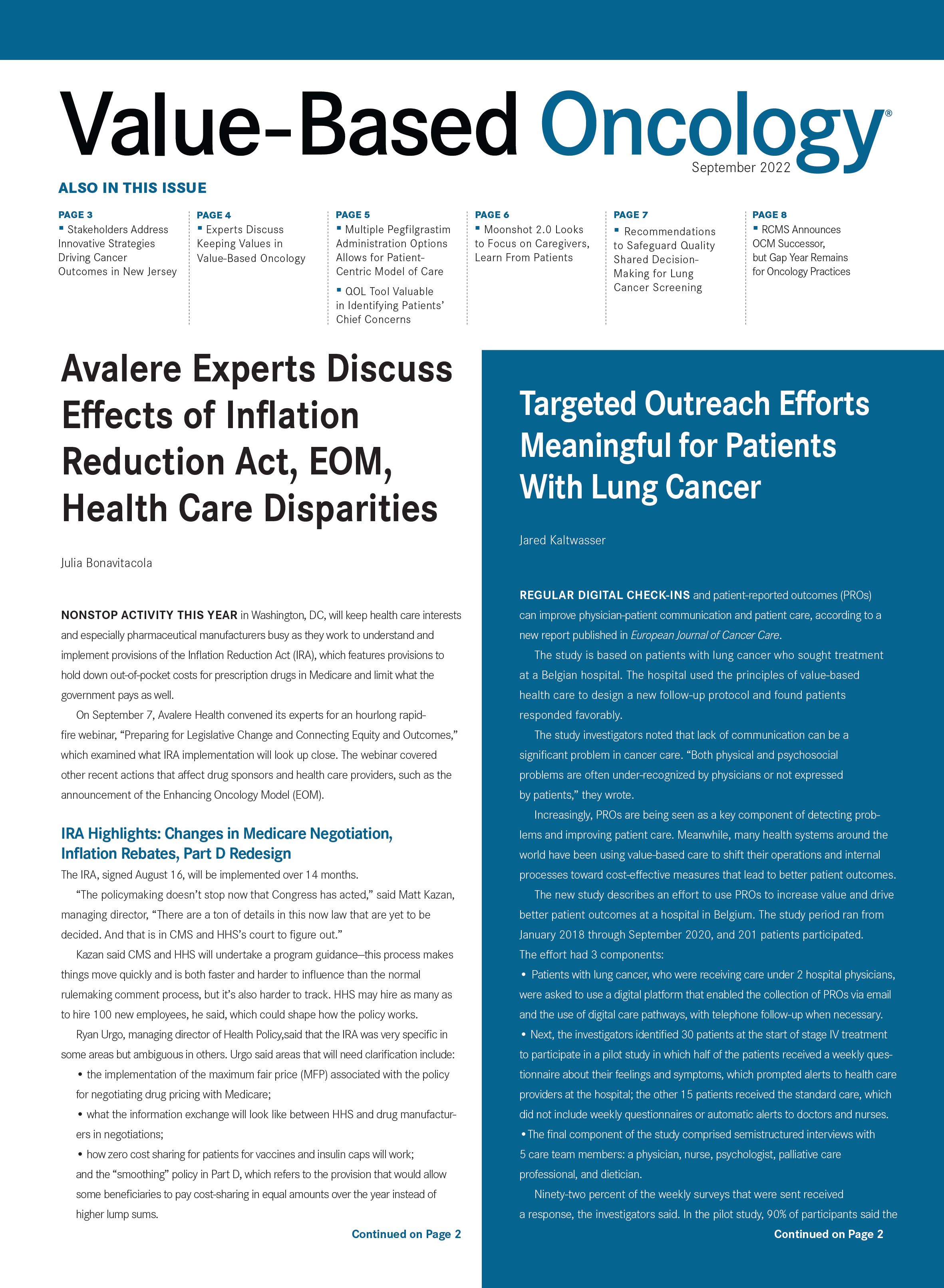
- Center on Health Equity & Access
- Clinical
- Health Care Cost
- Health Care Delivery
- Insurance
- Policy
- Technology
- Value-Based Care
Recommendations to Safeguard Quality Shared Decision-Making for Lung Cancer Screening
An updated national coverage determination from CMS about lung cancer screening has some stakeholders concerned that the quality of decision-making tools used by providers and patients may weaken.
An international group of researchers, practitioners, and stakeholders involved in advocating for high-quality shared decision-making tools used by providers and patients issued 2 recommendations Thursday in response to an updated national coverage determination (NCD) about lung cancer screening released earlier this year by CMS.
In a Viewpoint published in JAMA Oncology, the authors wrote that there is concern that the NCD from CMS in February 2022 “may be misinterpreted as lowering the standards for the counseling and shared decision-making visit and potentially lead to poorer quality decisions.”
CMS first released an NCD for lung cancer screening completed via low-dose CT (LDCT) in 2015, allowing Medicare beneficiaries to have the procedure covered beginning at age 55. Under the February revision, CMS dropped the beginning age to 50 years and tobacco smoking history was lowered from at least 30 packs per year to at least 20 packs per year.
In addition, the February NCD simplified requirements for the counseling and shared decision-making visit patients must complete prior to screening. Although the changes were made to reduce the administrative burden on providers, they have also raised concern from the International Patient Decision Aid Standards (IPDAS) Collaboration, which works to improve the quality and effectiveness of patient decision aids with an evidence-based approach. The authors of the Viewpoint are coleaders of IPDAS.
IPDAS was formed to address what the group says is an expansion of patient decision aids (PDAs) with “unknown quality, potential for conflict among developers with an interest in patient choice, and concerns about unintended bias resulting from how evidence is selected and information is presented.”
In the revision to the shared decision-making component, CMS expanded the definition of who can provide patient education to health coaches or health educators. Those individuals should be trained, according to IPDAS, saying that decision coaching is not routinely taught in medical training.
Before the revision, only physicians, physician assistants, nurse practitioners, or clinical nurse specialists could provide such decision coaching.
In the second recommendation, the authors said that PDAs should meet minimal quality standards and cited standards and checklists from IPDAS that set criteria for patient decision-making tools to the minimize risk of bias. In the changes released in February, providers no longer have to document information about the decision-making process in the medical record the way they did before.
“This change should not be interpreted as deemphasizing the importance of providing shared decision-making and using high-quality PDAs,” the authors wrote.
“We are concerned that the new coverage determination will invite the production and use of poor-quality decision aids by clinicians who lack shared decision-making skills,” they said. “Decision aids that meet IPDAS standards address benefits and harms in a balanced manner; use high-quality evidence; clearly specify conflicts of interest for developers; and are written in plain language for increased patient comprehension and inclusion of persons disproportionately impacted by tobacco use.”
The February NCD followed a 2021 update from the United States Preventive Services Task Force, which recommends yearly scans for people aged 50 to 80 years and reduced the pack-years of smoking history from 30 to 20. A pack-year is the equivalent of smoking an average of 1 pack of cigarettes each day for a year.
The screening recommendations seek to improve early detection of non–small cell lung cancer, which accounts for around 85% of all lung cancer cases.
Reference
Volk RJ, Stacey D. Ensuring high-quality shared decision-making for lung cancer screening. JAMA Oncol. Published online September 8, 2022. doi:10.1001/jamaoncol.2022.3766

2 Commerce Drive
Cranbury, NJ 08512
AJMC®
All rights reserved.